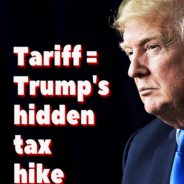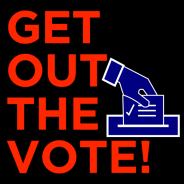A Branding Perspective: Why Corporations Oppose Voter Suppression
The rising tide of corporate resistance to new voting suppression laws is gaining momentum every day. The possible ramifications of this opposition are wide and deep. Conservatives urge business to stay out of politics, even though many enjoy receiving corporate contributions. Their rationale is a baseless argument that such modifications are essential for eliminating voter fraud, which has been totally disproven. On the other hand, many view these new voter restrictions as an alarming threat to our democracy, similar to the January 6...
read moreHow New Brand Names Reveal Emerging Values And Trends
A name is the face of a brand, the first impression of what a brand is all about – e.g. its values, promises and image. Ideally a new name should also consider social trends that are pertinent. Today, more young parents are choosing unique names for their babies that reflect their own values, a trend relevant for business and politics. Insightful Analysis On What’s Behind A Name In March, The Economist reported on their proprietary study of 400,000 parents born in America and Britain over the past 143 years. Using artificial intelligence, it...
read moreHow Trump Has Destroyed Trust in Brand America
It is difficult to fully comprehend the chaos that Trump has created in the past two weeks, especially the long-term implications for the U.S. and the world economy. What is at stake is trust in the U.S. brand as the most respected, safe repository for international trade and investments, plus the world’s most reliable steward of peace and prosperity. Views from “The Economist” This respected business conservative magazine described their reaction in a recent issue to Trump’s new trade policies, under the headline “Donald Trump‘s Mindless...
read moreThe Democrat’s Challenge: Restoring Brand Trust With Fresh Ideas
Trump’s recent speech to Congress revealed two stark realities. First, despite many falsehoods, the enthusiastic support from Republicans was overwhelming. Second, the Democrats looked weak and lost, with no clear, convincing response, no new ideas and no leadership. The Republicans did their homework and positioned their election promises wisely. But the Democrats can learn from this too. The key to successful branding is to fully diagnose and understand your target customer (or voter). Economic statistics are not nearly as relevant as...
read moreRepercussions And Risks From The New Rebranded Presidency
There has never been a more turbulent start to a Presidential term. Trump has created chaos throughout the government with his demands to completely dismantle agencies (e.g. U.S.A.I.D.), fire thousands of experienced professionals and cut funding that Congress had already approved, all to “make America great again”. But the most alarming part of Trump’s revenge is that most of his actions are illegal and unconstitutional. Trump is at least consistent in his unpredictable behavior, but now he has redefined the actual Presidential brand. ...
read moreBad News For Truth And Personal Branding
Building a strong brand requires diligent research, relevant and positive positioning and consistent credibility. Today that task is harder than ever. Our society is overwhelmed with negativity and distrust. Vicious personal attacks in every sector (e.g. government, entertainment, media, etc.) are rampart, exacerbating polarization. One of the most common accusatory words we hear these days by politicians is “weaponization”. The biggest contributor to this growing divisiveness is the pervasive use of misinformation, especially on social...
read moreWhy Americans No Longer Trust Our Institutions
Confidence in American institutions is at historical lows. During the past 25 years, trust in core political, social, and economic institutions has plummeted, coinciding with the rapid growth of the omnipresent internet in our lives. There is a ubiquitous presence of negativity, cynicism and polarization in our society today that fuels this lack of confidence which could have severe consequences in the future. This pessimism is dangerous. However, repositioning the various institutional brands could help create a more positive connection...
read moreHow The Election Validated Key Branding Principles
Trump’s election victory was a surprise (and a big disappointment) to many voters. The results were clear and there have been tons of post-election assessments to explain what went wrong for Harris. But the underlying reason surpassing all other “mistakes” involved voter emotions, in particular, their deep feelings of frustration and discontent over the economy, and whether they could afford the same lifestyle again. For the past four years, the average consumer has witnessed big price increases and other financial obstacles, from grocery...
read moreHow Cultural Swings Can Impact Brands
We live in a dynamic society where our cultural values and moods are in a constant state of flux, changing radically every decade or so. A historical perspective of these cultural swings shows the importance of recognizing emerging opportunities (and threats) for positioning a brand, even today as we approach the Presidential election World War I led to the roaring 1920’s with carefree hedonism, followed by the humbling depression in the 1930’s and then World War II. The Eisenhower period in the 1950’s was characterized by an expansion of...
read moreHow Emotions Shape Decision-Making For Brands And Politics
Brand marketing is all about making a promise that will excite an audience and ultimately establish a bond with them. Exactly what and how you communicate such a proposition requires a thorough understanding of your target’s needs, desires and values. Related to this, creativity is essential for finding that passionate “sweet spot” to emotionally connect with him/her. In other words, detached objectivity and a rational persuasion are not enough; emotional feelings are needed to guide reason and cognitive thinking for optimal...
read moreIs Conventional Etiquette Finally Coming Back? Implications For Branding
Our society is becoming more diverse, often contributing to polarization yet also demanding greater inclusion. It is indeed a highly dynamic culture today with evolving standards of etiquette. It has been over a hundred years since Emily Post wrote her iconic book “Etiquette” (1922) which shaped good behavior, civility and manners for decades. Recently however, with the advent of social media and its flood of rude misinformation, which is even more evident during an election year, most people think politeness and manners are in decline:...
read more












